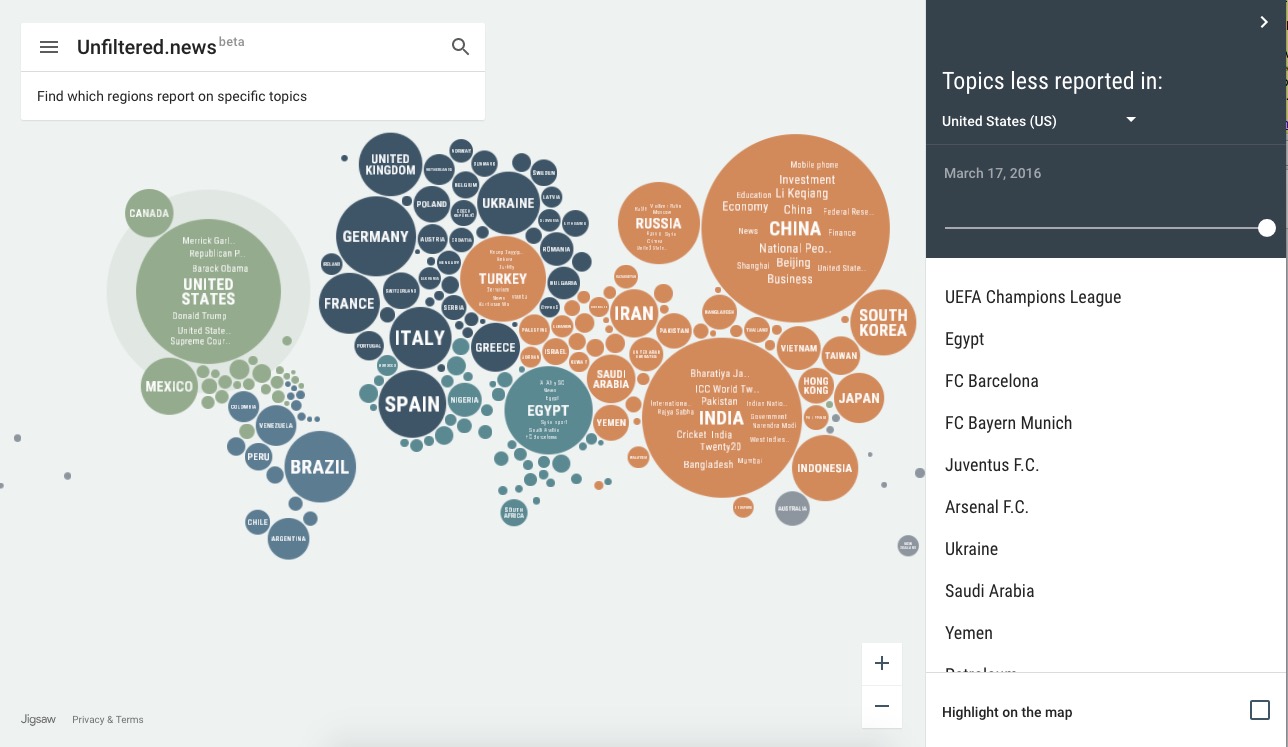Guilo Quaggiotto at Nesta: “If you were looking for the cutting edge of the development sector, where would you go these days? You would probably look at startups like Premise who have predicted food trends 25 days faster than national statistics in Brazil, or GiveDirectly who are pushing the boundaries on evidence – from RCTs to new ways of mapping poverty – to fast track the adoption of cash transfers.
Or perhaps you might draw your attention to PetaJakarta who are experimenting with new responses to crises by harnessing human sensor networks. You might be tempted to consider Airbnb’s Disaster Response programme as an indicator of an emerging alternative infrastructure for disaster response (and perhaps raising questions about the political economy of this all).
And could Bitnation’s Refugee Emergency programme in response to the European refugee crisis be the possible precursor of future solutions for transnational issues – among the development sector’s hardest challenges? Are the business models of One Acre Fund, which provides services for smallholder farmers, or Floodtags, which analyses citizen data during floods for water and disaster managers, an indicator of future pathways to scale – that elusive development unicorn?
If you want to look at the future of procuring solutions for the development sector, should you be looking at initiatives like Citymart, which works with municipalities across the world to rethink traditional procurement and unleash the expertise and innovation capabilities of their citizens? By the same token, projects like Pathogen Box, Poverty Stoplight or Patient Innovation point to a brave new world where lead-user innovation and harnessing ‘sticky’ local knowledge becomes the norm, rather than the exception. You would also be forgiven for thinking that social movements across the world are the place to look for signs of future mechanisms for harnessing collective intelligence – Kawal Pamilu’s “citizen experts” self-organising around the Indonesian elections in 2014 is a textbook case study in this department.
The list could go on and on: welcome to the era of development mutants. While established players in the development sector are engrossed in soul-searching and their fitness for purpose is being scrutinised from all quarters, a whole new set of players is emerging, unfettered by legacy and borrowing from a variety of different disciplines. They point to a potentially different future – indeed, many potentially different futures – for the sector…..
But what if we wanted to invert this paradigm? How could we move from denial to fruitful collaboration with the ‘edgeryders’ of the development sector and accelerate its transformation?
Adopting new programming principles
Based on our experience working with development organisations, we believe that partnering with the mutants involves two types of shifts for traditional players: at the programmatic and the operational level. At the programmatic level, our work on the ground led us to articulate the following emerging principles:
-
Mapping what people have, not what they need: even though approaches like jugaad and positive deviance have been around for a long time, unfortunately the default starting point for many development projects is still mapping needs, not assets. Inverting this paradigm allows for potentially disruptive project design and partnerships to emerge. (Signs of the future: Patient Innovation, Edgeryders, Community Mirror, Premise)
-
Getting ready for multiple futures: When distributed across an organisation and not limited to a centralised function, the discipline of scanning the horizon for emergent solutions that contradict the dominant paradigm can help move beyond the denial phase and develop new interfaces to collaborate with the mutants. Here the link between analysis (to understand not only what is probable, but also what is possible) and action is critical – otherwise this remains purely an academic exercise. (Signs of the future: OpenCare, Improstuctures, Seeds of Good Anthropocene, Museum of the Future)
-
Running multiple parallel experiments: According to Dave Snowden, in order to intervene in a complex system “you need multiple parallel experiments and they should be based on different and competing theories/hypotheses”. Unfortunately, many development projects are still based on linear narratives and assumptions such as “if only we run an awareness raising campaign citizens will change their behaviour”. Turning linear narratives into hypotheses to be tested (without becoming religious on a specific approach) opens up the possibility to explore the solution landscape and collaborate with non-obvious partners that bring new approaches to the table. (Signs of the future: Chukua Hakua, GiveDirectly, Finnish PM’s Office of Experiments, Ideas42, Cognitive Edge)
-
Embracing obliquity: A deep, granular understanding of local assets and dynamics along with system mapping (see point 5 below) and pairing behavioural experts with development practitioners can help identify entry points for exploring new types of intervention based on obliquity principles. Mutants are often faster in adopting this approach and partnering with them is a way to bypass organisational inertia and explore nonlinear interventions. (Signs of the future: Sardex, social prescriptions, forensic architecture)
-
From projects to systems: development organisations genuinely interested in developing new partnerships need to make the shift from the project logic to system investments. This involves, among other things, shifting the focus from providing solutions to helping every actor in the system to develop a higher level of consciousness about the issues they are facing and to take better decisions over time. It also entails partnering with mutants to explore entirely new financial mechanisms. (Signs of the future: Lankelly Chase, Indonesia waste banks, Dark Matter Labs)
Adopting new interfaces for working with the mutants
Harvard Business School professor Carliss Baldwin argued that most bureaucracies these days have a ‘non-contractible’ problem: they don’t know where smart people are, or how to evaluate how good they are. Most importantly, most smart people don’t want to work for them because they find them either too callous, unrewarding or slow (or a combination of all of these)….(More)”

